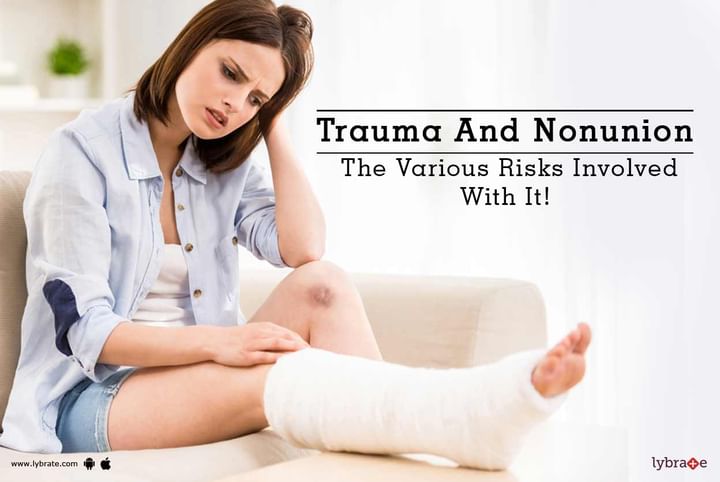Trauma And Nonunion - The Various Risks Involved With It!
Most bone fractures mend very easily with proper medical treatment and rest. However, in rare cases, a fracture caused by trauma may not mend even after adequate treatment. When a broken bone fails to heal, it is known as non-union. There are two major reasons for non-union:
• Bone lacks adequate stability
All broken bones require stability to heal. In case of a fracture, doctors place the dislocated bone in its original place and use an external device to hold the broken part in place. Usually, this stability is provided by a splint or cast, but can also be offered by frames and rods as well. However, if the broken bone lacks the required support, it may not set or heal properly, leading to the non-union.
• Fracture lacks proper blood supply
Even with proper stability, a broken bone requires a proper blood supply to start the healing process. The blood carries oxygen and other chemicals that aid in the repair of the bone and makes it crucial during the recovery stage. However, if the blood supply is disrupted, the bone cannot heal and leads to non-union.
Risk factors of non-union:
You are more likely to suffer from non-union if one or more of the following is true in your case-
• People who engage in cigarette smoking and any other form of nicotine addiction have a higher risk of non-unions after a fracture
• Older people can often face non-union, which is why fractures may take longer to heal in these people
• Severe anaemia can often restrict proper blood flow to the broken bone, thus inhibiting the healing procedure
• Similarly, people suffering from diabetes face a greater risk of non-unions
• Lack of proper nutrition may also be blamed for the non-union
• Non-union risks may increase because of side effects from certain medication, such as prednisone, ibuprofen, and aspirin. Consult your doctor in such a case, so that proper precautions can be taken accordingly.
Non-surgical treatment can be used for treating the non-union. Electromagnetic and ultrasound waves are passed through the skin and into the affected bone, in order to treat the non-union. In most cases, this treatment is very effective in curing the fracture. However, if the non-surgical treatment proves ineffective, surgical procedures, such as bone grafts and allograft can be utilized.



+1.svg)
